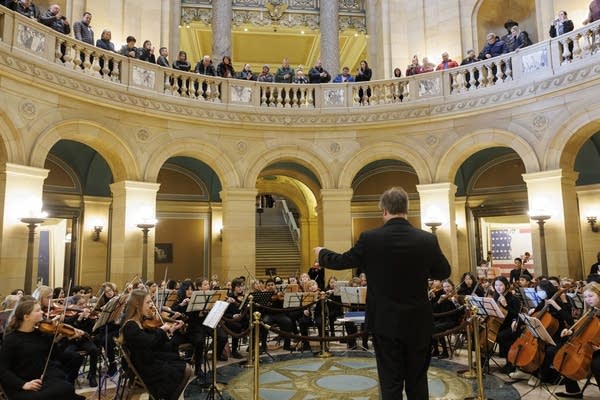Capitol will be abuzz in new session even as remote options remain

A Chippewa Middle School orchestra performs in the Minnesota Capitol Rotunda on Tuesday. Activity in the Capitol is building as the 2023 legislative session approaches and there's a bigger emphasis on in-person events.
Kerem Yücel | MPR News
Go Deeper.
Create an account or log in to save stories.
Like this?
Thanks for liking this story! We have added it to a list of your favorite stories.


